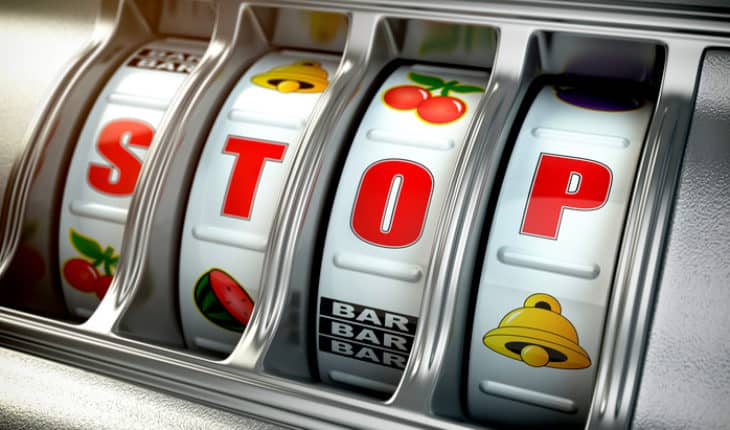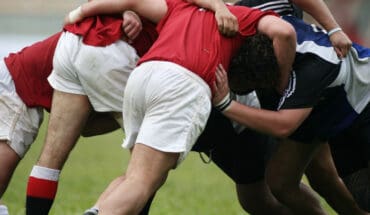Signs and symptoms of gambling addiction: The belief that a gambling addict can win back previous losses becomes all consuming, and the increasingly frantic attempts to do so draw the gambler deeper into the downward spiral.
Signs of gambling addiction include:
- Being constantly fixated on where your next gambling fix is coming from
- Feeling powerless to stop gambling, even when there is a great need or desire to do so
- Compounding the problem by gambling even more
- Gambling with larger sums of money to achieve your sense of thrill and reward
- Finding devious ways to hide the extent of your gambling from others
- Continuing to gamble even though you can see the damage being caused to your finances, social life, work and family relationships
- Stealing money or asking others to lend you money
Tips on treating gambling addiction at home
1. Removing all gambling apps on your PC and phone
Try to make your personal environment gambling free so you are less tempted by its presence. If you have been betting online or by telephone remove all numbers and applications that are associated with gambling. Temptation can never be completely eradicated but you can minimise it within your home environment.
2. Strengthen your support network
Support whilst you are trying to overcome any addiction is vital and can make a huge difference to your recovery. Active gambling addiction leans towards secrecy, isolation and dishonestly. By being honest with your family and friends that you are trying to quit gambling they will be more mindful and supportive.
3. Join a peer support group or mutual aid group for gambling addiction
Knowing that you are not alone in your battle with a gambling addiction is a great comfort. Peer support and mutual aid groups such as Gamblers Anonymous enable you to connect with like minded others. Mutual aid meetings are also a safe place for you to share your true thoughts and feelings without the fear of harming or causing worry to those close to you.
4. Learn new ways of coping with your emotions
Stress and strong emotions can be a trigger for addiction making an active comeback. In order to avoid gambling relapse it is important that you learn to manage your emotions in a healthier way. Healthier ways of coping with and managing emotions include: meditation, mindfulness, yoga, breath work, attending counselling for gambling, fitness, writing thoughts and feelings down and talking things through with someone who understands. We recommend trying different things so that you can gain as many tools to help you with your recovery from gambling as possible.
5. Face your problems
In order to overcome a gambling addiction it is necessarily to face the consequences the disorder has caused in your life. We understand that this is the hardest part of recovery for most. However, the pay off of facing up to your problems is immense. Try to tackle one problem at a time making a list of people or institutions you owe money too. Seeking help and advice from a debt resolution company or citizens advice will be very helpful.
6. Seek professional help for mental health problems and trauma
To give yourself the best chance of successfully overcoming problem gambling at home, it is essential that you seek professional help for anything that may hold you back or cause you to relapse. Most individuals who suffer from addiction have issues that are unresolved or a mental health illness that has not been correctly treated. Your GP will be able to arrange some counselling sessions for you and if deemed necessary, refer you into your local mental health services for further assessment and treatment.
7. Try to resolve problems in personal relationships
Addiction causes loved ones to suffer also. If you are close to your family or have a significant other, it is likely that they have bore the brunt of your gambling problem. Apologies and promises mean very little when they have heard it all before. We suggest showing them through your actions that you are serious about change. It may take time for them to trust you, do not be surprised if this time is lengthy. Be patient and suggest that they also seek help and support to help them heal too.
8. Be kind and forgiving of yourself
This is very important as feelings of shame, guilt and self hatred can really eat a person up. Understand that you suffer from an illness that gravely affects the way that you think and behave. Try to show yourself some compassion and do not be hard on yourself when you make mistakes. Part of recovery is learning from mistakes. As humans we are all fallible, there will be times that you will say or do the wrong thing. Try to right these matters wherever possible and then move on. It is also important to let go of expectations and timeframes. Recovery from addiction is a journey, not a destination.
The experts at residential rehab centre Delamere, have provided their tips (above) on how to recognise the signs and how people can switch off from gambling if they fear it is starting to take over their lives.
- New lipid-based pathway discovered as key to memory formation - 25th June 2025
- Crucial link could explain how Alzheimer’s takes hold - 25th June 2025
- Understanding Your Mind Can Improve Daily Life - 25th June 2025







